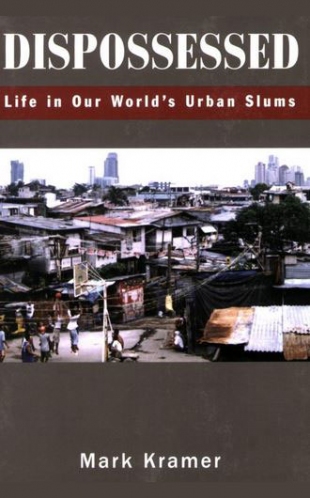According to the United Nations, more than one billion people live in urban slums, and this figure will double in the next 30 years. Put another way, one of every three people who lives in a city, lives in a slum. In this enlightening paperback, Mark Kramer, a journalist and social advocate, puts faces on people in dire straits in five cities: Manila, Nairobi, Mexico City, Bangkok, and Cairo. He writes: "Globalization demands that we seek common understanding in a world divided against itself. More and more we share common political, economic, and cultural interests with people thousands of miles from us. Every day our lifestyle choices influence others around the globe. Their choices affect us. Even beyond altruism and compassion, we must seek understanding because we have a common future with people in urban slums."
Kramer spent two to four weeks with each person he interviewed. He lived in close quarters with a Mexican woman with two boys, a Coptic Christian, a mother of one who served their meals on the floor of her home, a Kenyan who has worked in the slums developing churches and organizing residents, and a Thai woman who constantly fears eviction. He describes the major issues affecting urban settlements: land rights, living conditions, colonial histories, and evictions and demolitions. He discusses how an informal sector has emerged in cities, an underground economy both illegal (prostitution, drugs) and legal (street vendors, small construction work) that usually also reaches into housing arrangements (squatter settlements, refugee camps).
Kramer tells a story, from of all people Warren Buffet, that should stimulate thought about our connection to poor people: "Once during a meeting, Warren Buffet, believed to be the second wealthiest man in the world and considered by some to be the greatest stock market investor of our time, challenged a roomful of people to think about the following scenario: Imagine a lottery in which every person on earth receives a ticket. These six billion or so tickets assign the following circumstances, which individuals must enjoy or endure for the rest of their lives: place of birth, sex, race, type of ruling government, parents' names, income levels, and occupations, IQ, health risks, weight, height, eye color, hair color, and so on. He then spoke about the small probability in such a lottery of being born into privilege and said that people should be grateful and not take favorable circumstances for granted."
The last chapter describes some suggestions for serving the urban poor.
